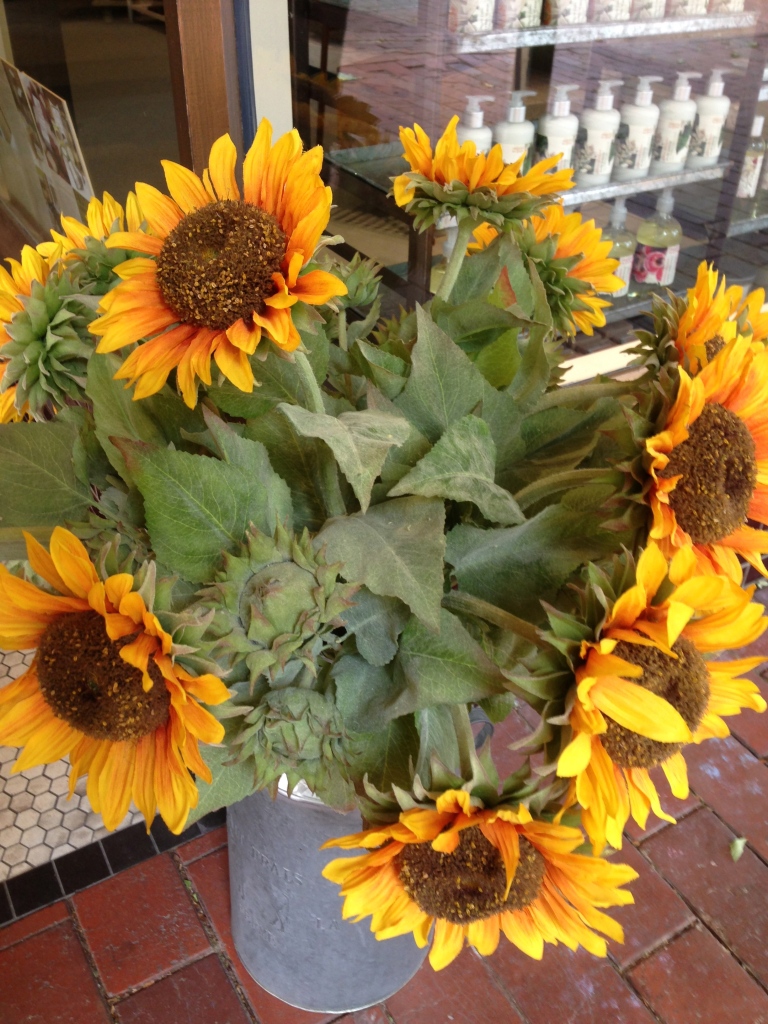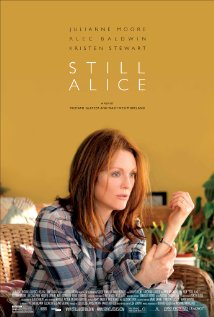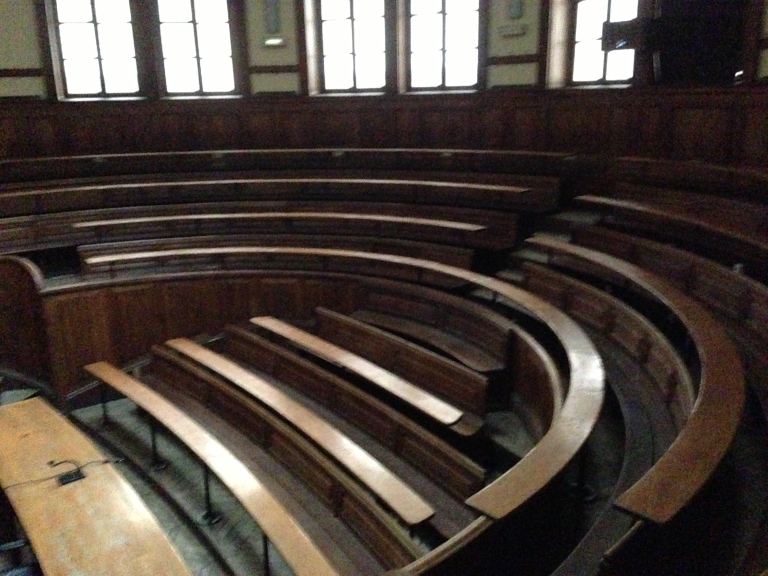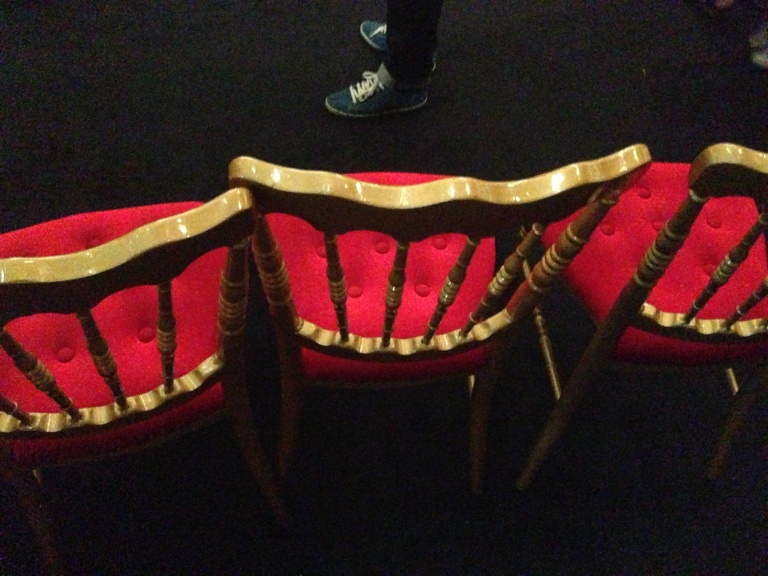If there is a horror movie no academic wants to watch it’s Still Alice, with a stand out performance by Julianne Moore, who deservedly won the Oscar gong for best actress for her portrayal of a 50 year old academic whose field is linguistics but suddenly discovers she can’t find the right word.
Alice is haunted in her own mind by loss. The loss of words, concepts, the lightening speed associations she has always taken for granted. Her vacant stare at the audience as she loses the thread while presenting a lecture is horrifying for those in academia whose minds are on sharp display in the public arena.
Chronicling the swift descent into complete memory loss (and loss of her identity as an academic and writer) that is early onset dementia, the chilling words from the protagonist’s neurologist that “it hits the brightest” pack a harder for punch than any looming shadow behind Ripley in the Alien movies.
I told a colleague I planned on a watching the film and she shook her head. “Why? Why would you put yourself through that?”
Why indeed. Moore portrays the beautiful, fit Alice who jogs her usual route only to look up and have no idea where she is. A fast tracked career academic who literally has it all by the age of 50 – the three adult children, the published books and intelligent and caring husband – and a picture perfect home as well. Then loses her ability to make sense of any of it as her mind unravels. She begins to face the lecture theatre with dread.
A bright mind with the pathways fading. It’s like a haunted house, empty but of ghostly memories that pop up in the inappropriate places.
As someone who relies on their mind and the layers of memory and lightening speed connections needed for writing, the thought of being lost for words is a nightmare.
As the neurologist explains to Alice, highly functioning people mask the symptoms of early onset Alzheimer’s disease for years, delaying treatment. They are smart enough to find clever coping mechanisms. Which, when you think about it, is what doctoral students do with stress, obligations, work and study demands. We find clever ways to cope.
The final scene (spoiler alert) of Still Alice is every writer’s fear. Alice loses the ability to speak, to even respond to her daughter. And – fade out. Yet there is a strong message of living in the moment, and at a lot to be said for living life full throttle and grabbing every last piece of it – children, career, writing and love – so that whatever end comes, at least you can face it in the knowledge that you have grasped your share of life as hard as possible.
But as for the question of how to live in the moment – especially as we are planning and living our careers – I am no expert. Certainly, writing a blog, putting the words and ideas out there, indeed, writing for a large audience is a way of writing in the moment. That’s always been the appeal of journalism, and by contrast, the long delays of academic publishing make a mockery of doing anything in the moment.
I love the immediacy of blogging for a large and diverse audience. Indeed, of arguing my point to people who also want to listen. Not that they necessarily agree. I look at the list of 71 comments for my latest blog on the media using topless girls to sell papers, published at Online Opinion, a monthly journal of political and social opinion. I don’t wish to read any of the comments.
Not because I fear what they will say, but because I do not want to write with anyone looking over my shoulder. While we seek feedback and support as writers, there comes a time when you have to say, ‘enough’. No one gets ring side seats to judge your work. As a writer, you can shut down your own creativity better than anyone. You don’t need a chorus of dissent to help the darkest side of your low self esteem flourish. Sure, an audience is entitled to say what they like, and when your work is in the public domain, it will attract all sorts of opinion. The trick is to not letting it change what you want to write and affect what you need to say.
Indeed, that’s the thing about doctoral study. Over the four years, you have to learn to feel out the territory alone, and accept that what you discover with your research, and what you write about it, will not always be to everyone’s satisfaction. But you have to have the guts to take the research out there anyone, and publish and be dammed.
If there is one lasting legacy of a doctorate, it is finding the courage of your convictions. After four years of slogging away on your research, you are not going to take lightly anyone telling you what to write.
And of course, as writers, those of us who live and die by our words know all too well the impact of our stories and ideas on others. We do not take this lightly, but neither are we going to be cowered. I was reminded of this when a dear writing friend was attacked for his work. How did he feel?
Simply – as if he had touched the nerve he was hoping to touch. He responded, “as someone who appreciates how deeply words can cut or send jitters of thrill or dismay through a person” this impact was to be expected.
I reflected then about the reaction my own writing has had on people, as I place it out there in academic journals and literary publications, such as my book chapter “My Lover’s Eyes” published in this special issue of Writing From Below, (Vol 2, No 1, 2014) remixes Death and the Maiden, examining the motif and other associated themes and subjects through a range of critical and creative works.
There is a point, as in Still Alice, where we as writers and academics need to reflect on the choices we have made and the sacrifices we have made for our work.
While I write Gothic Horror, the breakdown of the body and the cold winds of the pull towards the end are around me and those close to the people I care about right now. So I am naturally reflective about this question.
On one hand, it could be said the co-called ‘pointless’ nature of doctoral study in an area of creative writing isn’t worth the time it takes from our lives. If early onset dementia lurks around the corner, like in a Hollywood movie, why bother to study?
And if the end can snake out of the darkness while you are juggling your life and writing, is it worth the struggle to keep all the balls in the air, or is it better to take it easy, smell the roses, and relax?
One of the uplifting messages in Still Alice is that the demands we put on ourselves in fact shape us and at least let us burn brightly while we can. And to do so, with the blessing of family, friends and perhaps a partner with us, means we simply need to juggle harder, cram in everything and make more demands on ourselves. There is everything to be said for living for the moment, and living that moment as fully as possible.
Grab life, opportunities and throw yourself into fulfilling your dreams despite the knockbacks. Finish the doctorate, despite the many sacrifices. Publish your writing – and be damned if you must.
The alternative is to come home, sit down in front of the television, and give up. So don’t. No matter what the precarious future may hold, the choice we make with academic study and the choice we make as writers, is to extend ourselves and be amazing. And no matter what the outcome of your research, that’s a gift right there.
Carpe Diem. Seize the moment.



